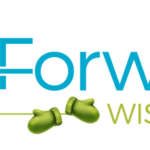Aurora St. Luke’s Medical Center in Milwaukee is the first site in the country to join a clinical trial studying machine-learning software designed to help novice users perform an echocardiography exam.
“Echocardiography, or an ultrasound of the heart, is the most widely used imaging method in cardiology,” said Bijoy Khandheria, MD, Advocate Aurora Research Institute’s principal investigator for the study. “It is more portable, less expensive and has fewer side effects than other cardiac imaging technologies. However, echocardiography requires intensive training in order to obtain accurate results.”
The clinical trial evaluates the safety and efficacy of UltraSight Echocardiographic Guidance (USEG) software. The software is a machine-learning, downloadable mobile application that uses artificial intelligence to provide real-time guidance on how to position the transducer, or wand-like device used to obtain the ultrasound images, when performing an echocardiogram. It is designed to help medical professionals who do not have advanced training in echocardiography obtain diagnostic-quality images of the heart.
“Echocardiography is useful for diagnosing a wide range of cardiac conditions, and the ultrasound images it produces can be evaluated in real time, making it valuable in a variety of settings, from outpatient clinics to emergency departments,” said Laura Wrona, MSN, director of cardiovascular clinical trials research. “By guiding novice users – perhaps a medical resident, nurse practitioner or physician assistant – through a limited exam, the USEG software has the potential to help health care providers more quickly detect urgent findings regarding the heart’s function.”
Participants will be asked to join the study because they have a cardiac echocardiogram scheduled as part of their standard medical care. If they consent to join the study, each participant will first undergo their scheduled standard of care echocardiogram. Then, as part of the research study, an expert sonographer will conduct an echocardiogram without assistance from the USEG software followed by a novice user who will receive guidance from the USEG software. Researchers will then assess the quality of the images obtained.
The study will evaluate the USEG software, not the device used to perform the echocardiogram. The transducer used to obtain the ultrasound images in this study is already approved by the U.S. Food and Drug Administration for commercial use. The USEG software is designed to work with any transducer.
The clinical trial, “Study for the assessment of the quality of echocardiographic clips,” is sponsored by UltraSight, developer of the USEG software.
To learn more about Advocate Aurora’s research, visit aah.org/research.
Read the full Advocate Aurora Research Institute press release here






